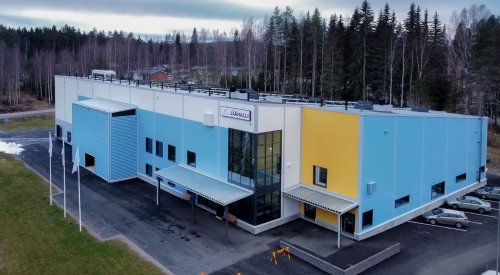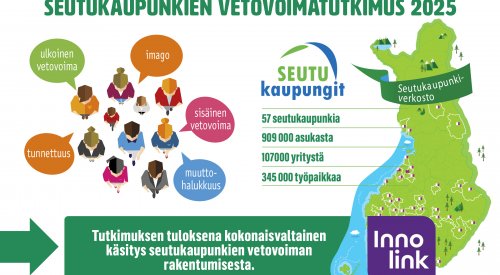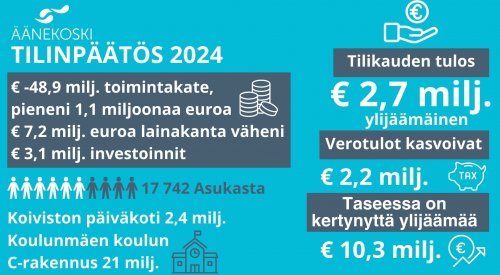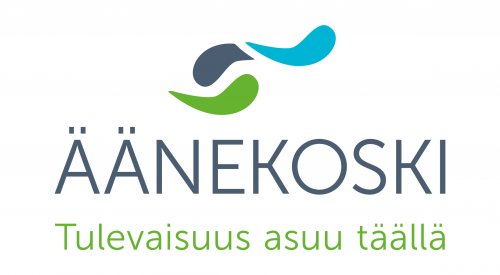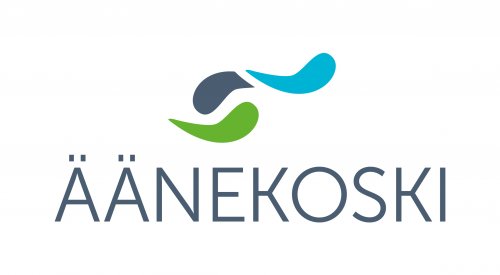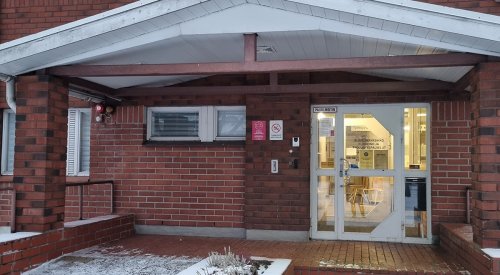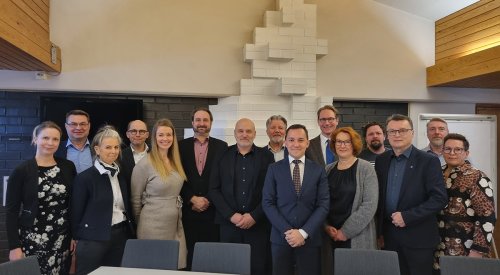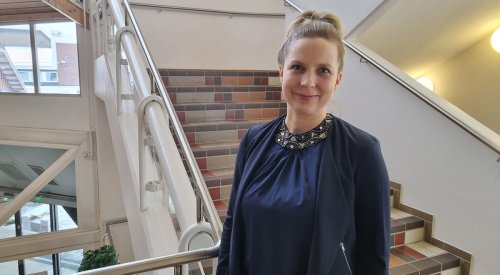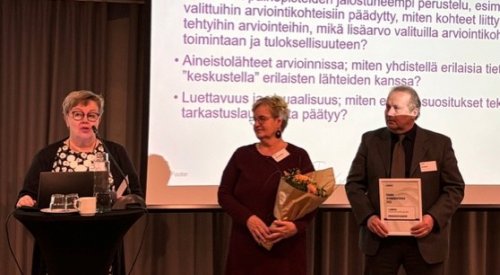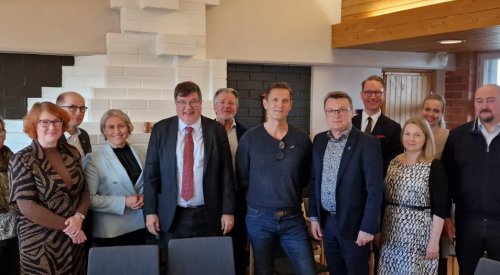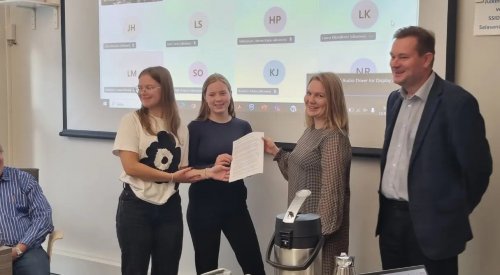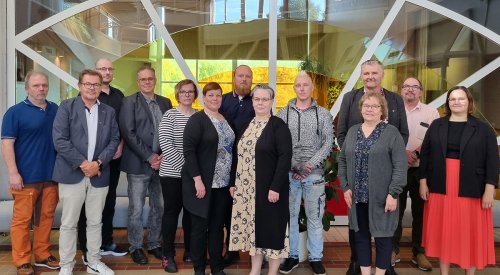TE-uudistus tuo työvoimapalvelut kuntiin vuoden vaihteessa
Asiakkaille pyritään turvaamaan mahdollisimman sujuvat siirtymävaiheen palvelut

Julkisten työvoimapalveluiden järjestämisvastuu siirtyy valtiolta kunnille vuoden 2025 alussa. TE-toimistot lakkautetaan. Uudistuksen myötä Suomeen muodostuu 45 kuntien muodostamaa työllisyysaluetta, jotka vastaavat hallinnollisesti palveluiden järjestämisestä.
Hankasalmi, Kannonkoski, Karstula, Kinnula, Kivijärvi, Konnevesi, Kyyjärvi, Laukaa, Pihtipudas, Saarijärvi, Uurainen, Viitasaari ja Äänekoski ovat perustaneet kuntien yhteisen Pohjoisen Keski-Suomen työllisyysalueen, jonka vastuukuntana on Äänekosken kaupunki.
Uudistus on historiallisen laaja, koko kuntakenttää koskeva uudistus, joka on vaatinut kunnissa monialaista varautumista sekä valmistautumista.
Näin mittavaan uudistukseen liittyy siirtymävaiheessa myös palvelujen sujuvaa jatkuvuutta hetkellisesti uhkaavia haasteita. Alkumetreillä erilaiset häiriöt, käyttökatkokset ja viivästykset palvelussa ovat mahdollisia.
Asiakkaat ovat kuitenkin tämän uudistuksen keskiössä ja kunnat pyrkivät ehkäisemään ja minimoimaan asiakkaille aiheutuvia haittoja huolellisella varautumisella.
Nyt jo tiedetään, että Työmarkkinatori.fi -sivustolla (jossa on mm. työnhakijoiden ja työnantajien sähköiset asiointikanavat) on käyttökatko ajalla 30.12.2024 - 2.1.2025 klo 8. Mahdolliset vuodenvaihteen asiat kannattaakin hoitaa hyvissä ajoin. Jos olet jo TE-palvelujen tai kuntakokeilun asiakas, sinun ei tarvitse tehdä mitään erityistä, vaikka palveluntarjoaja vaihtuu vuoden vaihteessa. Tiedotamme mahdollisista muutoksista työllisyysalueen ja kuntien verkkosivuilla ja otamme yhteyttä tarvittaessa myös henkilökohtaisesti.
Mikäli asiakkaiden tietojen siirtymisessä valtiolta kunnille tai tietojärjestelmien käyttöönotossa ilmenee ongelmia, voi tämä näkyä asiakkaille esim. maksatusten viivästymisenä tai asiakaspalvelun ruuhkautumisena.
Asiakkaille aiheutuvia haittoja pyritään kaikin tavoin ehkäisemään ja minimoimaan.
Keski-Suomen TE-toimisto muistuttaa tiedotteessaan, että palkkatuki- ja starttirahahakemusten käsittelyyn on tulossa tauko vuoden vaihteessa. Hakemusten kanssa kannattaakin olla ajoissa ja laittaa asia vireille mahdollisimman pian. Palkkatuki- ja starttirahapäätöksiä käsitellään TE-toimiston järjestelmässä 19.12.2024 saakka. Tämän jälkeen jätetyt hakemukset ja keskeneräiset hakemusprosessit ohjautuvat 1.1.2025 aloittaville työllisyysalueille, joten hakemukset kannattaa jättää hyvissä ajoin. Keskeneräisten asioiden käsittely voi siirtyä tuleville työvoimaviranomaisille ja muutos voi aiheuttaa viiveitä hakemusten käsittelyssä.
TE-uudistus on mittava digi- ja henkilöstöuudistus
TE-palvelujen siirtyminen kuntiin tarkoittaa siirtymistä valtion keskitetystä järjestelmästä hajautettuun kuntapohjaiseen palvelujärjestelmään. Vaikka TE-toimistot lakkautetaan, ELY-keskusten sekä TE-toimistojen kehittämis- ja hallintokeskus eli KEHA-keskus hallinnoi jatkossakin työnhakijoiden ja työnantajien oma-asiointikanavia, Työmarkkinatoria sekä keskitettyä asiakastietojärjestelmää.
Kunnat käyttävät keskitetyn asiakastietojärjestelmän lisäksi omia järjestelmiään esimerkiksi avustusten maksamisessa ja muutostenhaussa. Valmistelun aikana kuntien on pitänyt rakentaa uusia rajapintoja ja varmistua yhteensopivuudesta tiedonhallinnan, arkistoinnin, käyttäjähallinnan sekä asiakkuuksien siirron onnistumiseksi niin kunnan sisällä kuin kuntien ja työllisyysalueiden että kuntien ja valtion välillä. TE-uudistus on siten myös mittava digiuudistus.
Käytännössä siirtyminen uuteen malliin niin tietojärjestelmien, asiakassiirtojen kuin käyttöoikeuksienkin osalta tapahtuu yhden yön aikana.
Mikäli asiakkaiden tietojen siirtymisessä valtiolta kunnille tai tietojärjestelmien käyttöönotossa ilmenee ongelmia, voi tämä näkyä asiakkaille esim. maksatusten viivästymisenä tai asiakaspalvelun ruuhkautumisena.
Uudistuksen myötä kuntiin siirtyy liikkeenluovutuksella reilut 4400 työllisyyden edistämisen asiantuntijaa TE-toimistoista. Äänekoskelle siirtyy noin 65 uutta työntekijää. Kunnilla ei kuitenkaan ole toimivaltaa käydä siirtyvän henkilöstön osalta muutosneuvotteluja kuin vasta uudistuksen toteutumisen jälkeen eli 1.1.2025.
Yhteistoimintaneuvotteluiden käyminen vie aikaa, mikä tarkoittaa, että henkilöstö ei pääse aloittamaan työssään täydellä teholla heti vuoden alussa. Tämä voi näkyä esimerkiksi asiakaspalveluaikojen saamisessa, lausuntojen laatimisessa ja viivästymisenä maksatuksissa.
Kunnissa vahva tahtotila turvata asiakkaille sujuva siirtymä
Henkilö- ja yritysasiakkaat ovat TE-uudistuksen keskiössä ja kunnat pyrkivät ehkäisemään ja minimoimaan asiakkaille aiheutuvia haittoja huolellisella varautumisella.
Kunnat eivät lähde rakentamaan uutta palvelua tyhjästä, vaan esimerkiksi ennen vuoden vaihdetta syntyneet palvelu- ja maksatusvelat siirtyvät kuntiin sellaisenaan. Kunnille siirtyy KEHA:n arvion mukaan esimerkiksi noin 46 000 myöhässä olevaa harkinnanvaraista kulukorvausta, joista esimerkkinä ukrainalaisten korvaukset.
Lisäksi rahoitus lakisääteisiin tehtäviin on siirtymässä kuntiin alimitoitettuna, ja valtiolta siirtyvä palveluvelka tuo lisähaastetta kunnille.
Valtio korvaa kunnille maksatukseen liittyvät kulukorvaukset, mutta henkilöresursseja ei korvata. Jonojen purkaminen syö jo ennestään vähäisiä resursseja.
On selvää, ettei yhdessä yössä pystytä tilannetta nollaamaan tai käynnistämään toimintaa täydellä teholla, mutta kunnat ovat valmiita tarttumaan haasteeseen ja tekevät parhaansa. Kunnissa on vahva tahtotila saada palvelujen mukana siirtyvät jonot purettua.
Asiakkaille aiheutuvia haittoja pyritään kaikin tavoin ehkäisemään ja minimoimaan.
Kuntien tavoitteena on turvata asiakkaille mahdollisimman sujuvat palvelut siirtymävaiheessa. Pidemmällä aikavälillä kuntien tavoitteena on kehittää palveluita entistä vaikuttavimmaksi toteuttamalla paikallisiin tarpeisiin sopivia ja yksilöllisesti räätälöityjä palveluja.
Kunnissa ja työllisyysalueilla on käytössään erilaisia toimintamalleja vuodenvaihteen siirtymävaiheeseen. Kunnat tiedottavat tarkemmin mahdollisista häiriöstä ja niiden vaikutuksista omissa kanavissaan.
Teemme kaikkemme, että palvelujen siirtymisestä olisi mahdollisimman vähän vaivaa.
Mikä TE-uudistus?
- Julkiset työvoimapalvelut siirtyvät valtion TE-toimistoilta kuntien vastuulle 1.1.2025. Suomeen syntyy 45 kuntien muodostamaa työllisyysaluetta.
- Suurin osa alueista järjestää palvelunsa vastuukuntamallilla, neljä kuntaa järjestää palvelunsa itse ja kaksi aluetta kuntayhtymämallilla.
- TE-toimistojen konsepti ei sellaisenaan siirry kuntiin, vaan uudistus on kunnille mahdollisuus tehdä asiat uudella tavalla.
- Uudistus tuo palvelut lähemmäs asiakkaita. Kunnat tuntevat asukkaansa ja elinkeinoelämänsä parhaiten, mikä mahdollistaa paikallisiin tarpeisiin sopivien ja yksilöllisesti räätälöityjen palvelujen toteuttamisen.
- Kyse ei ole vain työllisyyden edistämisestä. Kunnat saavat vahvistuvien peruspalvelujen myötä lisää työkaluja elinvoiman edistämiseen.
Lisätietoja:
Työllisyysaluejohtaja Tiina Mäenpää, 040 159 2610, tiina.maenpaa@aanekoski.fi
Lue lisää Pohjoisen Keski-Suomen työllisyysalueen valmistelusta täältä
Uutinen julkaistu , muokattu 25.2.2025 klo 12:22






